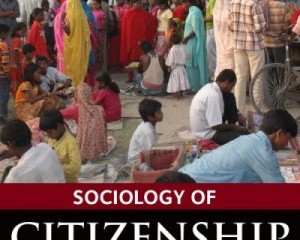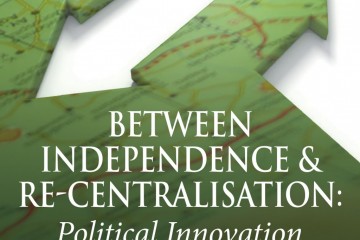
ELECTION – The Cambridge Politics Podcast
From the University of Cambridge comes ELECTION, a weekly politics podcast; asking the questions that no one else is in the run-up to the British General Election with the most interesting people inside and outside the political arena.
Can democracy adapt to our strained political system? Who (if anyone) will ‘win’ in 2015? What can the lessons of the past teach us about the future?
Professor David Runciman puts these questions to philosophers, historians, scientists, and political thinkers – with enlightening results – in a weekly podcast series coming from his office in the Department of Politics and International Studies.

The UK’s constitutional future: a view from the US
As both a constitutional lawyer, albeit one specializing in the United States, and a political scientist, I followed with great interest the recent vote in Scotland regarding potential secession from the United Kingdom. From an entirely detached academic perspective of someone with no affiliation with the United Kingdom or any of its regions, the final outcome almost did not really matter. It is simply the case that the actual affirmative vote to remain within the United Kingdom generates different, but still fascinating, questions from those that would have occurred had those supporting secession prevailed. In the latter case, there would have been much discussion, no doubt, about the mechanics by which Scotland would become truly independent and, crucially, whether it would have easily …

The making of the Greater Manchester mayor – what next?
Much has been made of backroom deals between the Chancellor George Osborne and Manchester City Council’s chief executive Sir Howard Bernstein to deliver the most significant devolutionary settlement of Whitehall budgets in England. The price of the deal is an elected mayor, who from 2017, will oversee significant sums of devolved spending, answerable to a cabinet made up of the ten council leaders of the Greater Manchester authorities. For some attending a cities@manchester debate earlier this week, the imposition of an elected mayor is seen as an unwelcome and undemocratic step. But this view underplays the way in which this deal represents the culmination of over ten years of hard work and commitment by all the region’s elected leaders (and their officers) to collaborate …

Government in Greater Manchester: A mayor for all seasons?
From June, Greater Manchester will get an interim mayor as part of a deal with the Government on regional devolution. But its imposition without a referendum is a fundamental error by the political elite that may well backfire, argues Professor Colin Talbot. ‘Mayors’ seem to have become the default answer of many in the political elite to the problems of local government and governance in the UK, or more specifically England. Linked to the idea of English devolution as an answer to Scottish ‘home rule’ this has become a heady brew. But maybe it’s time to ask some sober questions about this project of ‘Devo Manc’, at least in terms of the proposed system of government for Manchester. My argument is, …

‘We are Sierra Leoneans, not slaves’: contesting citizenship in Freetown
In the summer of 2013, Freetown’s King Jimmy Bridge collapsed. This was around a decade after the end of Sierra Leone’s civil war, and a year before the outbreak of the deadly Ebola virus; needless to say, the resulting deaths seemed barely newsworthy.
But King Jimmy Bridge, and the tunnels that it took down with it, had particular significance to the many young people who make a precarious living in the neighbouring streets’ vibrant informal economy. The tunnels bore the marks of the chains used to imprison the victims of the Atlantic slave trade, as passages to the Ocean they were about to cross. Before King Jimmy Bridge collapsed, the tunnels served as congregation spots for young people, where discussions ensued about their current predicaments and about the plight of the youthman in a country where high rates of youth unemployment have forced a generation into marginal and irregular income-generating activities.
The powerful symbolism of Sierra Leone’s historical memory of the slave trade (see Shaw 2002) was not simply embodied in marginal youths’ existence in the tunnels under King Jimmy Bridge. It was also explicitly evoked in their articulations of a political imagination based on notions of a citizens’ right to work. In the aftermath of an urban beautification project, Operation WID (Waste management, Improvement of the roads, and Decongestion), that curtailed street trading and commercial motorbike riding, young people’s frustration at this blow to their livelihoods was expressed through a poignant refrain: “We are Sierra Leoneans, not slaves!”

The Metropolitanisation of Nationality? City-regions, autonomy and the territorial state
The recent plebiscite on Scottish independence has triggered a much wider debate in the UK about the organisation of state power in institutional and territorial terms.
In particular, the role and economic position of the main cities vis-à-vis the state have raised headlines about ‘cities going independent’, such as ‘Devo Met’ (The Economist, 25 Oct 14). This not only continues the strong focus on the economic dimension of statehood and its territorial and institutional manifestation, but also that of identity and the sense of community (commonality). No longer, so it seems, does nationality operate automatically through the ‘nation state’ as a territorial and governmental entity. Instead, metropolitanism is encouraging, perhaps requiring, a ‘reterritorialisation of politics’ (Sellers and Walks, 2008). This growing emergence of an urban (metropolitan) dimension to national (and international) discourses on shared values, imaginations and common purpose has come to challenge the nationalisation thesis formulated as part of ‘political modernisation’ (Hofferbert and Sharkansky, 1971), and its primary focus on territorial states as expressions of an existing and cohesive civil society, or as ‘nationalisers’ seeking to shape a national identity (Brubaker, 1995). This once prevailing thesis propagates national contexts as dominant, hegemonial conditioning factors which reach across states, including regional and local identities and discourses, whether urban or not. The understanding of nationality has thus been viewed from a top-down perspective of discursive nationality, and corresponds with the territorial view that cites, being down the scalar hierarchy from the state, are automatically an integral part of that – bigger – entity – geographically, institutionally and discursively.
Such, in effect, triple hierarchisation – where territory, institutional power structures and discourse of identity and belonging (communality) sit in parallel hierarchical arrangements – is now being challenged by a growing urban/metropolitan voice stepping out of the seemingly homogenous sonority of a national discursive ‘backcloth’. This may appear as a reverse step to the integrative, even homogenising, effects of nationalising politics (Caramani, 2004), seeking to overcome spatial and societal differences in identities and sense of belonging. From such a (conventional) perspective, states are seen as the ‘natural’ rallying points of national discourses of self-determination and their geographic manifestation.

Between Independence & Re-centralisation: Political Innovation in an Age of Devolution
In 2014 the push for devolution became a major political issue. Scotland remains in the UK, but only after last minute bargaining devolved further powers to Holyrood. This has encouraged calls for more devolution of powers to Scotland, Wales, Northern Ireland and for the formation of an English parliament. George Osborne’s Autumn Statement proves that Westminster is listening. Meanwhile, MPs and local governments want more powers entrusted to local authorities. Manchester is following Bristol’s lead in appointing a mayor.
The UK is not alone in this trend. Emboldened by the experience in Scotland, Catalonia held an independence vote of its own, even if unrecognised by the government in Madrid. Legal or not, that vote may also boost efforts in the Basque Country, Bavaria and Flanders.
While these votes may prove unsuccessful, the tension surrounding them will linger. The issues depend on the contextual consequences of the increasing trend towards devolution. There are two forces operating in two different directions: on the one hand, city/regional small nations are demanding Independence from their referential nation-states, while on the other hand, nation-states themselves are re-centralising or decentralising their structures and powers.
Over the coming months, this Special Series will focus on the diverse angles to this debate by identifying and emphasising certain innovative and thought provoking case studies for the purpose of comparison.
Posts will cover topics like the re-scaling of nation-states, constitutional change, the right to decide, independence movements, the federal EU hypothesis, the Europe of Regions approach, democratic participation and civic nationalism in relation to city-regions.

Four options for configuring the British constitution
Inbuilt within the United Kingdom is the potential for instability. It is a multi-nation state, like Belgium, Canada, Spain and – some would say – the European Union. At present, it consists of three nations – Wales, Scotland and England; and a fourth territory, Northern Ireland, the status of which is complicated and controversial. This internal differentiation is not necessarily a weakness. But it has at times been a source of problematic tension. Pressure for more autonomy, or even secession, has come from within some of the national groups incorporated into the UK. Early in the history of the state, during the eighteenth century, Scottish Jacobite rebellions took place. The place of Ireland within the UK has often been a …









